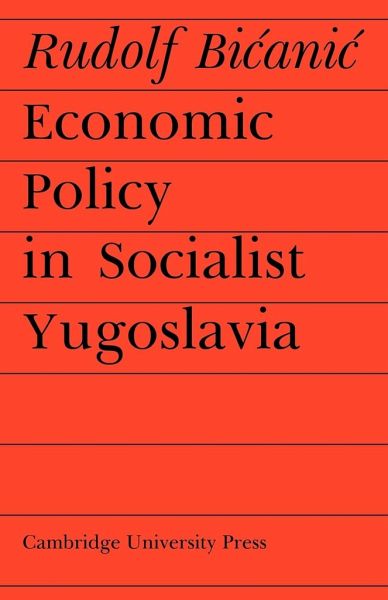
Economic Policy in Socialist Yugoslavia
Versandkostenfrei!
Versandfertig in 1-2 Wochen
42,99 €
inkl. MwSt.

PAYBACK Punkte
21 °P sammeln!
This 1973 posthumous publication of Rudolf Bi¿ani¿'s last work on the Yugoslav economy is a fitting tribute to a great Yugoslav of the pre-war era, who survived the revolution and made a notable contribution to the new Yugoslavia. Bi¿ani¿ was a man of broad learning, equally at home as a geographer, an economist and a political scientist, who was also a man of affairs. His book provides a lucid survey of the economic development of Yugoslavia from 1918 to the 1970s. Bi¿ani¿ discusses the three planning models used in post-war Yugoslavia - the centralized (1947-1951), the decentralized (1...
This 1973 posthumous publication of Rudolf Bi¿ani¿'s last work on the Yugoslav economy is a fitting tribute to a great Yugoslav of the pre-war era, who survived the revolution and made a notable contribution to the new Yugoslavia. Bi¿ani¿ was a man of broad learning, equally at home as a geographer, an economist and a political scientist, who was also a man of affairs. His book provides a lucid survey of the economic development of Yugoslavia from 1918 to the 1970s. Bi¿ani¿ discusses the three planning models used in post-war Yugoslavia - the centralized (1947-1951), the decentralized (1952-1964) and the polycentric (1965-1970) - and discusses the implications of these models in the context of Yugoslavia's industrialization. The book is not only essential reading for anyone wishing to understand Yugoslavia's economic background, but it also raises questions of general interest concerning the application of socialist principles to the industrialization of developing societies.




